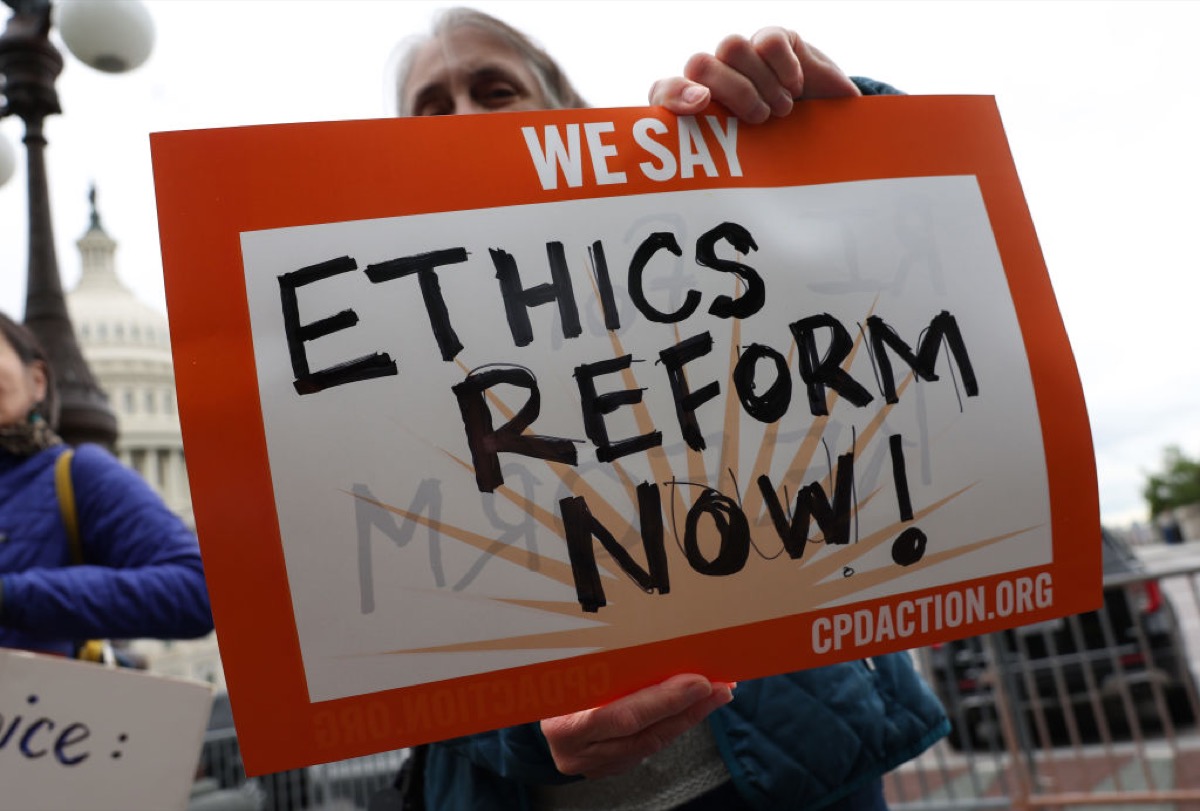Why the Supreme Court’s Upcoming Indian Child Welfare Act Decision Is So Concerning
This could harm generations of Native and Indigenous children.

This month, the U.S. Supreme Court will announce a decision on the Indian Child Welfare Act (ICWA) and whether or not it should be considered discriminatory against white foster families. The case in question, Haaland v. Brackeen, was filed by Chad and Jennifer Brackeen as they attempted to adopt their 10-year-old Navajo and Cherokee foster son.
The Brackeens argued in court that because they had more resources, they would be a better home than the boy’s Native relatives. As Evangelicals, they have also indicated that they see adoption as a way to “rectify [their] blessings” and serve a higher purpose—unsurprising, given the religious motivations behind adoption illustrated in the TikTok below. The Court ultimately allowed them to adopt the child, with the agreement that the boy’s Native family would be allowed supervised visitation. Despite this apparent victory, the lawsuit has continued and grown. Multiple (white) families seeking to adopt Native children have joined, as have the states of Texas, Louisiana, and Indiana.
While some people argue that it’s good that foster parents would fight so hard to keep their families together, a majority of the media surrounding this case has not taken into account the Native American perspective or experience.
Many Indigenous former foster kids have reported experiencing racism that their foster families (or custodial parents) either didn’t protect them from or even perpetuated. It also once again cuts away at tribal sovereignty and the ability of Native peoples to govern themselves and decide what is best for their own people.
History
The unfortunate fact is that these cases do not occur in a vacuum. America (and many other countries) has a long history of using government bodies, like “Indian Schools” and Child Protective Services, to separate indigenous children from their families. These legalized kidnappings essentially allowed the U.S. government to prevent Native children from being brought up in their own cultures, surrounded by their own languages, histories, and people. This is what is known as cultural genocide, or genocide that is focused on eradicating the national, cultural, and spiritual practices of a targeted people.
The Indian Child Welfare Act was a rare piece of legislation that actually sought to undo the damage caused by separating indigenous families by creating “[f]ederal standards for the removal and placement of Native children as well as with termination of parental rights to protect the best interests of Native American children and keep them connected to their families and Tribes.”
It hasn’t fixed everything, of course. Despite being a small racial demographic, Native children still make up a disproportionally large percentage of the number of children in the foster system in both the U.S. and Canada, but it was progress—progress that could be undone if Haaland v. Brackeen allows more Native children to be taken from their families and tribes.
The Supreme Court
Unfortunately, the decision to overturn Roe V. Wade has made the Court’s intentions terrifyingly clear; they want a ‘domestic supply of infants’ to be raised in traditional American households with good old-fashioned American values. And the court is willing to destroy the lives of anyone who doesn’t fit into that mold.
That does make it seem likely that the ICWA will be overturned.
So what can we do?
The Supreme Court is not made up of Senators or Representatives or other elected officials, to whom we can call and appeal. That doesn’t mean people aren’t finding different ways to make their voices heard. Native Activists on TikTok and other platforms are circulating petitions and videos informing people about the ICWA and what overturning it would mean for them and their people.
But like many struggles of marginalized people, we must stand together. This case is only one of the many that seek to undermine marginalized people’s rights to have families and children. It’s a struggle we are all going through and the only way we will get through it is standing together.
(featured image: Kevin Dietsch/Getty Images)
Have a tip we should know? tips@themarysue.com